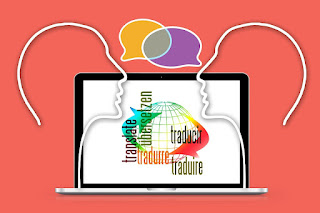Learning a second language
Share your views on the importance of learning a second language.
Hello, everyone! Today, I want to talk about why learning a second language is so important. Imagine being able to speak, read, and understand words from another world. That's what it feels like when you learn a new language.
Why it’s good for you:
First, learning another language is like discovering a new part of yourself. It makes you smarter, helps you solve problems better, and can even improve your memory. It’s also your ticket to understanding people from different cultures. By learning their language, you start to see the world the way they do, and that’s a beautiful thing.
How it helps your career:
Secondly, knowing two languages makes you stand out when you’re looking for a job. Many companies work with people from different countries and they really value employees who can speak more than one language. It’s not just about talking—understanding another culture can help you in jobs like diplomacy, where you need to bring people together, or translation, where you turn words from one language into another.
Making the world a better place:
Finally, when lots of us learn new languages, we help bring the world closer together. We can understand and appreciate our differences and build bridges between cultures. Plus, being able to communicate with a wider range of people makes our communities more welcoming for everyone.
In short, learning a second language opens up so many doors. It’s not just about finding the right words; it’s about connecting with the world in a way you never thought possible. Let’s all take that step together, shall we?
 |
| Learning a second language |
Advanced version
Learning a second language is an enriching endeavor that transcends mere communication—it opens up a portal to multicultural understanding and fosters cognitive development. From my perspective, the significance of this venture can be observed through various lenses—personal, professional, and societal.
Personal Growth: Acquiring a second language is not just about learning new words and grammar; it's a deep dive into another culture. It enables one to appreciate the nuances of different societies, promoting empathy and a global mindset. This process also enhances one’s cognitive abilities, such as problem-solving and multitasking, and has been shown to improve memory and delay cognitive decline.
Professional Advantages: In today's globalized economy, bilingual or multilingual individuals often stand out in the job market. They possess a competitive edge in international businesses and are invaluable assets in roles that require cross-cultural communication. Understanding another language also opens up broader career opportunities across various fields such as diplomacy, international relations, and translation.
Societal Impact: On a broader scale, the collective knowledge of multiple languages within a society can bridge cultural gaps and foster mutual understanding among diverse groups. This is crucial in an era where cultural misunderstandings can lead to significant conflicts. Moreover, bilingual education systems can support social integration for immigrants, aiding in their adaptation and participation in their new communities.
In conclusion, learning a second language is far more than a skill—it's a pathway to understanding the complex tapestry of human culture and thought. Its benefits stretch from the confines of personal development to the broad horizons of global harmony, making it a pivotal pursuit in today’s interconnected world.

Comments
Post a Comment
Alıştırmalarla ilgili cevaplarınızı, soru ve isteklerinizi yorum kutusuna yazabilirsiniz.